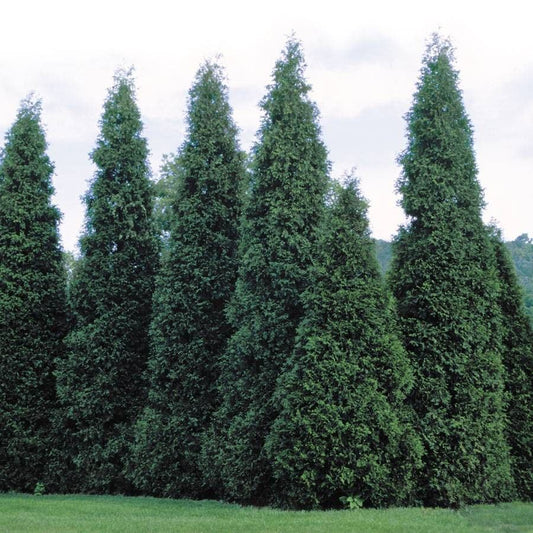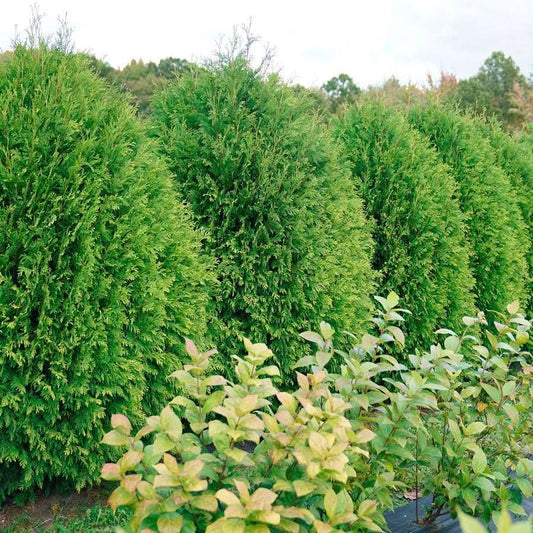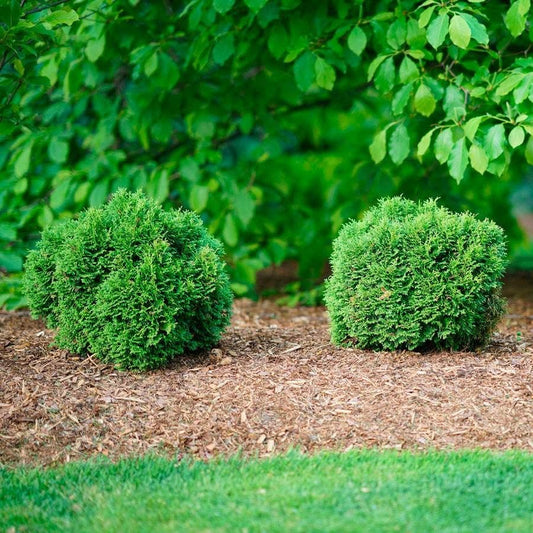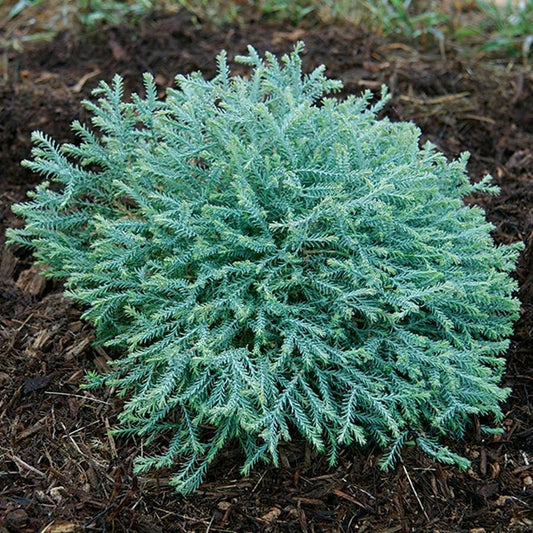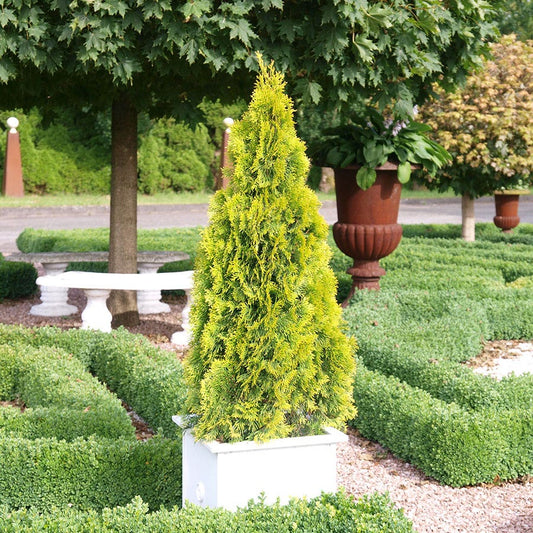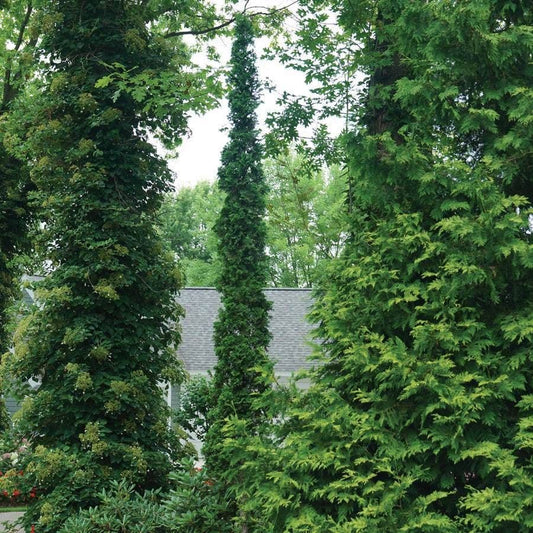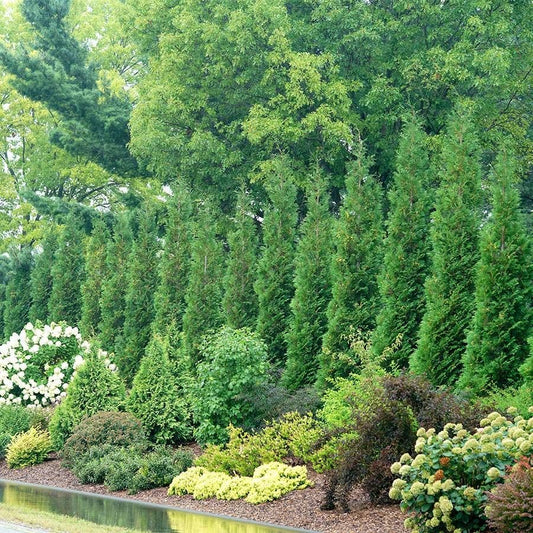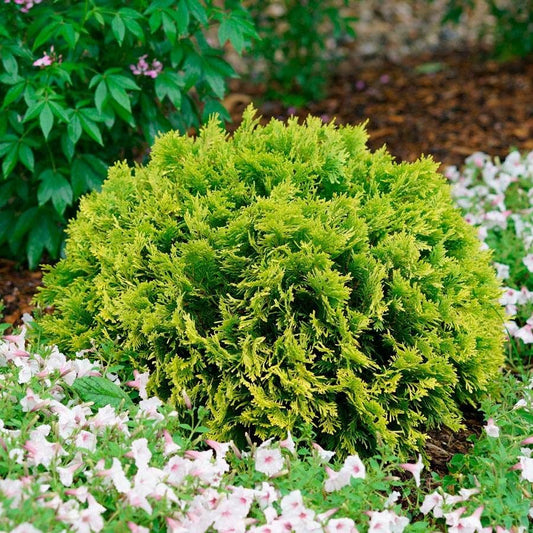Thuja Trees
Arborvitaes in the Thuja genus are coniferous evergreen trees that provide the garden with structure, texture, and color all year round. The trees vary widely in color, shape, and size.
-
Thuja Fluffy®
Regular price $26.95Regular priceUnit price / per$26.95Sale price $26.95 -
Thuja 'Green Giant' Arborvitae
Regular price From $25.95Regular priceUnit price / per$25.95Sale price From $25.95 -
Thuja Cheer Drops™
Regular price $24.95Regular priceUnit price / per$24.95Sale price $24.95 -
Thuja North Pole®
Regular price $24.95Regular priceUnit price / per$24.95Sale price $24.95 -
Thuja Tater Tot®
Regular price $24.95Regular priceUnit price / per$24.95Sale price $24.95 -
Thuja Pancake™
Regular price From $32.95Regular priceUnit price / per$32.95Sale price From $32.95 -
Thuja HIGHLIGHTS™
Regular price $28.95Regular priceUnit price / per$28.95Sale price $28.95 -
Thuja Sting™ Arborvitae
Regular price $39.95Regular priceUnit price / per$39.95Sale price $39.95 -
Thuja Full Speed A Hedge®
Regular price $36.95Regular priceUnit price / per$36.95Sale price $36.95 -
Thuja ANNA'S MAGIC BALL®
Regular price $24.95Regular priceUnit price / per$24.95Sale price $24.95
Thuja Trees
Great for specimens, topiary, privacy screens, and hedges
Although the trees vary widely in color, shape, and size, depending on variety and growing conditions, they typically grow from 10 feet (dwarf varieties) to 60 feet tall; have an elegant, naturally pyramidal shape; and are dense with flat sprays of scale-like leaves. Their bark is fibrous, furrowed, and brown to reddish brown in color. Seed cones are small, and pollen cones are inconspicuous.
Of the 5 species in the Thuja genus, T. occidentalis, commonly called American arborvitae or eastern arborvitae, and T. plicata, commonly called giant arborvitae or western red cedar, are native to North America and are the most common for home landscapes.
These trees are not only ornamental but also utilitarian and environmentally friendly. Small cultivars make excellent specimens or sculpted topiaries and can be grown in containers. Matching pairs on either side of a front door or garden entrance instantly creates classic appeal. Large arborvitae trees are extensively grown as backdrops, privacy screens, and hedges. When grouped as such, these trees help muffle nearby noise and clean the air by trapping airborne particulate pollution. In summer, they shade and cool surrounding areas; in winter, they block cold winds to help insulate our homes. The lush foliage provides shelter and nest sites for wildlife and birds, and the seeds supply them with a valuable food source.
Tough, easy to grow, and disease resistant, arborvitae trees thrive in full sun and adapt to a wide range of soils.

